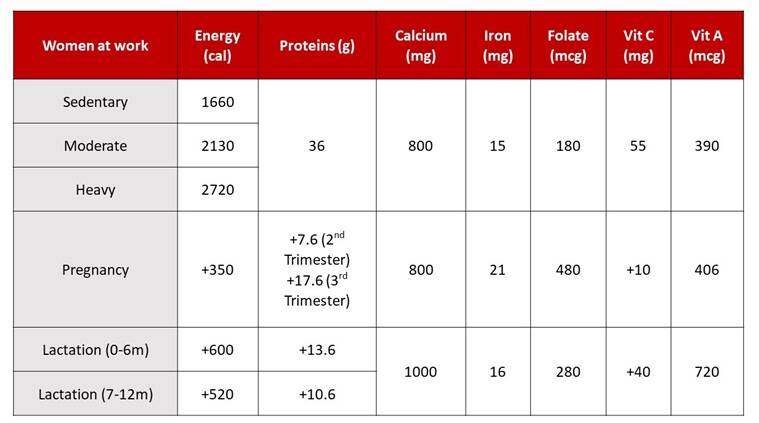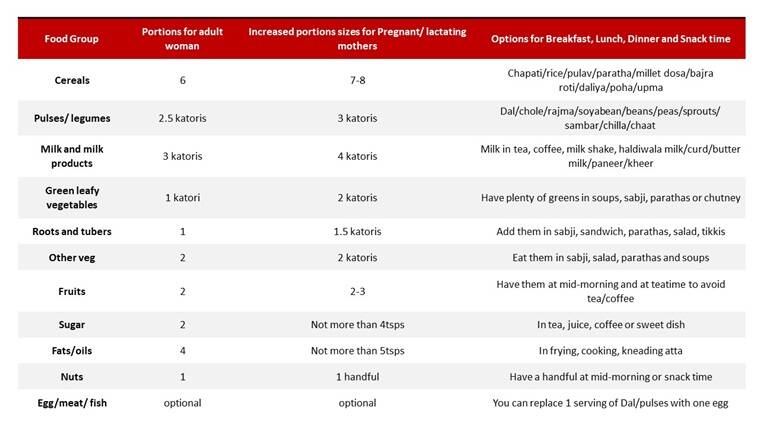Health tips: Nutrition for pregnant and lactating women – The Indian Express
Motherhood is a life-changing experience. Pregnancy is undeniably the most wonderful journey whether, you are a first-time mom-to-be or are…
Motherhood is a life-changing experience. Pregnancy is undeniably the most wonderful journey whether, you are a first-time mom-to-be or are pregnant with your second or third child. But pregnancy and lactation are physiologically and nutritionally highly demanding phases.
“During pregnancy nutrient requirements are high for increased maternal and foetal metabolism, for growth of foetus and placenta, amniotic fluid volume, and adaptations to maternal tissues (uterus, breast, blood volume). For optimal weight gain (10-12kg) and a healthy infant (about 3kg) additional calories and nutrients are required. If nutrient requirements are not met, it can lead to maternal malnutrition which can eventually lead to pregnancy and delivery complications and low birth weight infants (<2.5kg),” said Dr Meghana Pasi, nutrition expert, Arogya World My Thali program.
She added that during lactation, the nutrient demands are higher than pregnancy – as in the first 4-6 months , the infant’s weight doubles their birth weight and the milk secreted in the first four months accounts for the energy equivalent to the total energy cost of pregnancy. Hence, the mother should be well fed during this phase.
Follow the key components of a healthy lifestyle during pregnancy and lactation:
● A balanced diet
● Appropriate and timely vitamin and mineral supplementation
● Regular exercise
Based on the Estimated Average Requirements given by the ICMR-NIN (2020), below table gives the comparison of the nutrient requirements of adult women vs. pregnant and lactating mothers
 During pregnancy nutrient requirements are high and if the required nutrition level is not matched it can lead to complications. (Source : PR Handout)
During pregnancy nutrient requirements are high and if the required nutrition level is not matched it can lead to complications. (Source : PR Handout)
“By adopting a healthy eating habit, you can meet the increased nutrient demands. Increase the quantity (portion) of different foods as recommended to meet your nutrient requirements (poshan). Eat 5-6 meals: breakfast, mid-morning, lunch, evening snack, dinner, bedtime. Balance your Thali at each meal. The comparison of portion sizes is explained easily in this table,” she told indianexpress.com.
 Pregnant women should increase the quantity (portion) of different foods as recommended to meet their nutrient requirements. (Source : PR Handout)
Pregnant women should increase the quantity (portion) of different foods as recommended to meet their nutrient requirements. (Source : PR Handout)
Below are the most essential nutrients to be included in your diets everyday:
Iron
- Iron is needed for hemoglobin synthesis, mental function and to build immunity against diseases.
- Deficiency of iron leads to anemia which increases the risk of premature birth, low birth weight baby, and postpartum depression.
- Deficiency in children increases susceptibility to infection and impairs learning ability.
Green leafy vegetables, legumes/beans, dry fruits, nuts/seeds, egg yolk are rich in iron. Include these foods in your meals every day. The bioavailability of iron from vegetarian foods is poor whereas it is good from animal foods. Vitamin C helps in increasing iron absorption. Hence, include fruits like amla, guava, oranges, lemon in your meals. Avoid having tea/coffee before, during, or soon after a meal as they inhibit iron absorption.
Folate/Folic Acid
- Folate is a B vitamin that helps prevent neural tube defects, congenital abnormalities of the brain and spinal cord in the foetus.
- Folic acid supplementation has shown to decrease the risk of premature birth and increase birth weight. It is also essential for the synthesis of haemoglobin
Foods rich in folate are green leafy vegetables, legumes, beans, citrus fruits and nuts.
Calcium
- Both you and your baby require calcium for strong bones and teeth.
- Calcium also helps your circulatory, muscular and nervous systems run normally.
Good sources of calcium are milk, curd /buttermilk, paneer, low-mercury fish and seafood, green leafy vegetables.
Vitamin D
- Vitamin D also helps build your baby’s bones and teeth.
- Too little vitamin D can cause rickets (softening and weakening of bones).
Good sources are fatty fish eg. salmon, fortified milk, eggs, mushrooms.
Proteins
- Protein is crucial for growth of your baby’s tissues and organs, including the brain
- It helps with breast and uterine tissue growth during pregnancy.
Good sources are lean meat, poultry, fish, eggs, nuts, soybean, dals/legumes, peas/beans, milk and milk products.
Some more nutrition tips:
- Choose foods rich in fibre (40g/day) like whole grain cereals,pulses and vegetables to avoid constipation.
- Drink plenty of fluids like buttermilk, lemon water, coconut water including 8-10 glasses of water every day.
- Avoid excess tea/coffee. They can have adverse effects on foetal growth and caffeine in breast milk might agitate your baby or interfere with baby’s sleep.
- Avoid junk foods as they contain no nutritional value and add only sugar, fat and salt to your diet.
- Take supplements advised by your doctor, Vit B-12, Omega-3, Vit D, Iron and folic acid.
Care besides adopting a healthy balanced diet:
- Exercise and stay active. This will help you manage your health and de-stress. Go for swimming or walking and avoid sports like rock climbing or basketball. Start slow and do not overdo if you have never exercised before pregnancy.
- Go for periodic health checks.
- Do not take any drugs without medical advice.
- Avoid smoking and alcohol.
Eating home-cooked balanced thali will not only keep you and your baby healthy, but it will also keep you away from other chronic diseases.
Comments